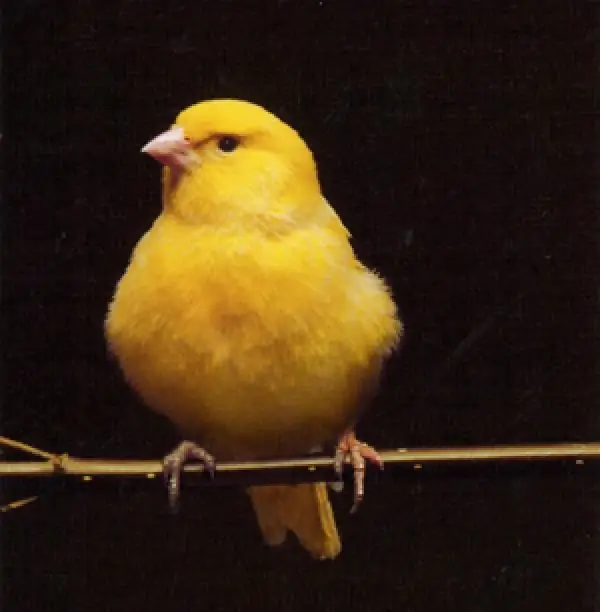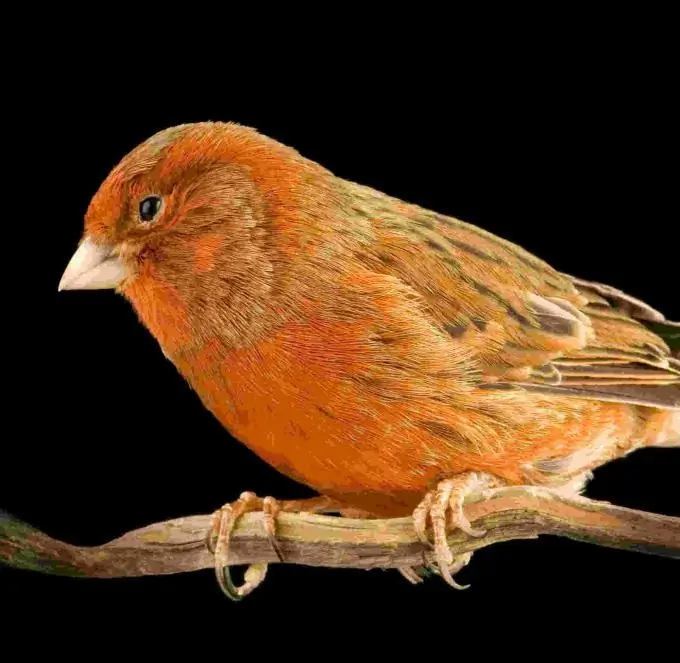- Author Delia Mathews mathews@animalspeace.com.
- Public 2024-01-08 23:30.
- Last modified 2025-01-22 15:45.
You have decided to purchase a small feathered wonder - a canary. Of course, the bird is a very good gift for a child, husband and any family member. But before you arrange this gift for yourself and your loved ones, you need to prepare very carefully for buying a bird. If you have never kept at home not only canaries, but also any birds at all, it is better to carefully read this instruction before visiting a pet store.

It is necessary
canary cage, attentiveness and vigilance
Instructions
Step 1
The bird must be healthy. In order to determine the condition of a canary, you must carefully examine it. First of all, pay attention to the eyes: they should be open and have a healthy glow. If you see that the eyelids are swollen or one eye is half open, you should not buy such a bird. The plumage of a healthy bird is smooth and without visible defects. The feathers are not disheveled or sticking out, there are no plucked feathers or bald spots either. If a canary sits on a perch, ruffled, and looks sluggish, this can also be a sign of illness. Do not listen to the stories of sellers that she was tired (had a fight, did not get enough sleep, overeat, etc.). All this may turn out to be true, but it is better to play it safe.

Step 2
You, of course, need a young bird. It is not worth buying very young, just fledged chicks for one simple reason - it is completely incomprehensible what gender they are. If you do not have enough experience to distinguish a male from a female by eye, it is better to acquire sexually mature individuals. Everything is very clear here: if a canary sings, it's a boy. By the way, singing is another indicator of a bird's health. Canaries who do not feel well completely lose interest in beauty and do not make any sounds. But cheerful singing is a sure sign of a bird's health.

Step 3
Take a close look at the canary's legs. In a healthy young individual, they are even, without outgrowths, peeling and pronounced deformities. If the paws are in growths, you are looking at a canary grandmother. In addition, claw defects can be the cause of the disease. Also pay attention to the bird's breathing. If canaries are frightened, they can breathe heavily, opening their beak slightly. But if nothing terrible happens, and the bird continues to breathe, making hissing sounds, something is clearly wrong with it.






